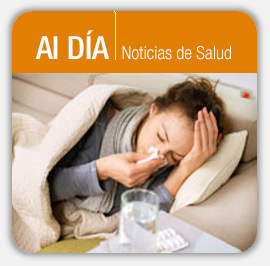Mujeres embarazadas no deben abstenerse de recibir la vacuna contra H1N1 ni las drogas antivirales
A medida que la “segunda ola” de influenza H1N1 viene en camino, “el modo habitual de pensar acerca del embarazo y la medicación amenaza con empeorar una situación ya preocupante” opinaron tres expertos médicos en el New York Times. Los autores son Anne Drapkin Lyerly, profesora asociada de Ginecología y Obstetricia en la Duke University; Margaret Little, directora del Georgetown Kennedy Institute for Ethics; and Ruth Faden, directora del Johns Hopkins Berman Institute of Bioethics.
Los tres especialistas comentaron que las mujeres embarazadas, habitualmente, están “abrumadas de consejos de las cosas que deben evitar”, desde la cafeína hasta el sushi, siendo la “advertencia primordial” , “no tomes esto, no uses esto, no hagas esto”. Aunque en la mayoría de los casos esta mentalidad es simplemente innecesaria y productora de ansiedad, … en el caso de la pandemia de influenza puede ser mortal “si las mujeres embarazadas evitan la vacunación contra el H1N1 o dejan de tomar los medicamentos antivirales por temor de dañar al feto.
http://www.medicalnewstoday.com/articles/165657.php
The opinion piece cites a study published this summer in the Lancet that found “strikingly high rates of death and of complications like pneumonia in pregnant women with H1N1 infection.” According to the study, pregnant women have a fourfold risk of hospitalization, “sometimes with a tragic outcome,” as “all the pregnant women who died had been relatively health to begin with,” the opinion piece says. Because of these risks, the Centers for Disease Control and Prevention has placed pregnant women at the top of the priority list for the H1N1 vaccine and recommended that pregnant women start antiviral medications as soon as possible after exposure to the virus and onset of flu symptoms.
“But if experience is any indication, forceful recommendations may not be enough to overcome reluctance among pregnant women and those who care for them,” according to Drapkin Lyerly, Little and Faden. The opinion piece notes that one study found that only 15% of pregnant women receive the seasonal flu vaccine, the lowest percentage of any adult group for whom the vaccine is recommended. The Lancet study showed that many pregnant women with flu symptoms were not treated soon enough, with delays ranging from six to 15 days from the onset of symptoms and two to 14 days from the time of a doctor visit.
According to the opinion piece, “This is a sadly familiar pattern.” The authors write that “[a]fter the thalidomide disaster of the 1960s, and the very real concerns it raised about the impact of drugs on fetal development, many ended up viewing the use of any medicine by pregnant women as anathema.” Because of this, “doctors and women alike often eschew or discontinue medications for serious illnesses, even when the harms of untreated disease, for women and the children they bear, are worse than any risk of medications,” Drapkin Lyerly, Little and Faden write. They continue that “even when the evidence is clear, pregnant women find it hard to fight against the ‘don’t take it, don’t use it, don’t do it’ mentality” and that “obscured from view are the risks of the disease itself.”
Drapkin Lyerly, Little and Faden recommend that “[e]very effort needs to be made to alert pregnant women and clinicians about the special risks of H1N1 in pregnancy,” as well as “the reasoning behind these important recommendations, including both the limits of what we know and the reasons that concern for pregnant women is now so great.” They also write that the “key to success, now and in the future, will be the conduct of research that is specific to the needs of pregnant women,” adding that the “urgent threat of H1N1 flu has brought into sharp relief the fact that pregnant women can and should be protected through research, not from it.” The authors note that studies are underway to examine the effect of the H1N1 vaccine and antiviral drugs in pregnant women.
“If there was ever a time to rewrite the playbook on how to think about drugs, vaccines and pregnancy, this is it,” the authors state, concluding that the “lives of women and babies depend on it” (Drapkin Lyerly et al., New York Times, 9/29).
Reprinted with kind permission from http://www.nationalpartnership.org. You can view the entire Daily Women’s Health Policy Report, search the archives, or sign up for email delivery here. The Daily Women’s Health Policy Report is a free service of the National Partnership for Women & Families, published by The Advisory Board Company.
© 2009 The Advisory Board Company. All rights reserved.
Publicado: oct 1st, 2009. ![]()










